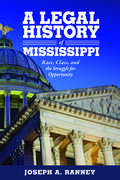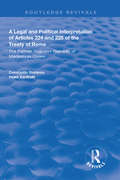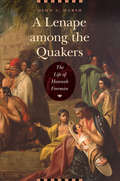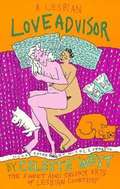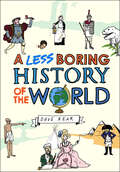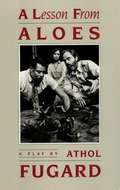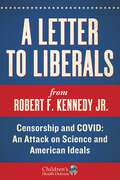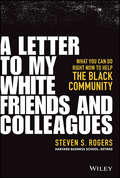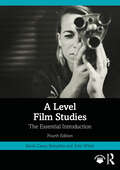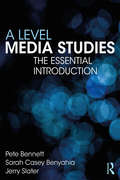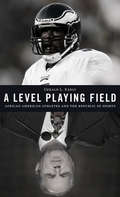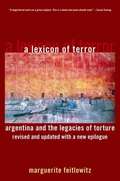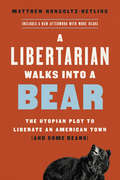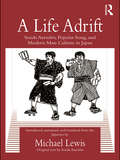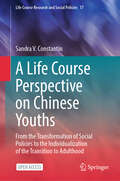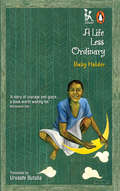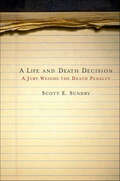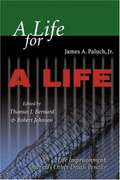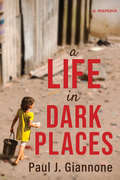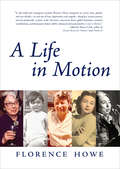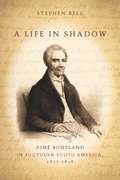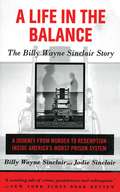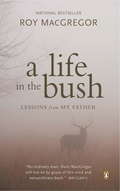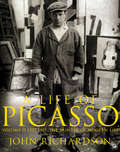- Table View
- List View
A Legal History of Mississippi: Race, Class, and the Struggle for Opportunity
by Joseph A. RanneyIn A Legal History of Mississippi: Race, Class, and the Struggle for Opportunity, legal scholar Joseph A. Ranney surveys the evolution of Mississippi’s legal system and analyzes the ways in which that system has changed during the state’s first two hundred years. Through close research, qualitative analysis, published court decisions, statutes, and law review articles, along with unusual secondary sources including nineteenth-century political and legal journals and journals of state constitutional conventions, Ranney indicates how Mississippi law has both shaped and reflected the state’s character and, to a certain extent, how Mississippi’s legal evolution compares with that of other states.Ranney examines the interaction of Mississippi law and society during key periods of change including the colonial and territorial eras and the early years of statehood when the legal foundations were laid; the evolution of slavery and slave law in Mississippi; the state’s antebellum role as a leader of Jacksonian legal reform; the unfolding of the response to emancipation and wartime devastation during Reconstruction and the early Jim Crow era; Mississippi’s legal evolution during the Progressive Era and its legal response to the crisis of the Great Depression; and the legal response to the civil rights revolution of the mid-twentieth century and the cultural revolutions of the late twentieth century. Histories of the law in other states are starting to appear, but there is none for Mississippi. Ranney fills that gap to help us better understand the state as it enters its third century.
A Legal and Political Interpretation of Articles 224 and 225 of the Treaty of Rome: The Former Yugoslav Republic of Macedonia Cases (Routledge Revivals)
by Helen Xanthaki Constantin StefanouFirst published in 1997. Article 224 is one of the most powerful Articles of the Treaty of Rome, allowing a member state to take unilateral measures and to suspend some or all its Treaty-based obligations in times of what can loosely be described as serious internal turmoil or external threat. It is for this reason that the very next Article of the Treaty, Article 225, allows the Commission or a member state to challenge invocation of Art.224, before the European Court of Justice (ECJ), on grounds of improper use. In practice, the use of Art.224, by a member state presents multiple problems. The obvious connection with defence and security issues has inhibited the ECJ which still has not given and authentic interpretation of this Article. As the recent former Yugoslav Republic of Macedonia (FYROM) cases (Greek referral for the embargo on FYROM) indicate, unless the use of Art.224 is blatantly flippant, the ECJ is not in a position to challenge a member state’s unilateral measures.
A Lenape among the Quakers: The Life of Hannah Freeman
by Dawn G. MarshOn July 28, 1797, an elderly Lenape woman stood before the newly appointed almsman of Pennsylvania’s Chester County and delivered a brief account of her life. In a sad irony, Hannah Freeman was establishing her residency—a claim that paved the way for her removal to the poorhouse. Ultimately, however, it meant the final removal from the ancestral land she had so tenaciously maintained. Thus was William Penn’s “peaceable kingdom” preserved. A Lenape among the Quakers reconstructs Hannah Freeman’s history, traveling from the days of her grandmothers before European settlement to the beginning of the nineteenth century. The story that emerges is one of persistence and resilience, as “Indian Hannah” negotiates life with the Quaker neighbors who employ her, entrust their children to her, seek out her healing skills, and, when she is weakened by sickness and age, care for her. And yet these are the same neighbors whose families have dispossessed hers. Fascinating in its own right, Hannah Freeman’s life is also remarkable for its unique view of a Native American woman in a colonial community during a time of dramatic transformation and upheaval. In particular it expands our understanding of colonial history and the Native experience that history often renders silent.
A Lesbian Love Advisor
by Celeste WestWitty, yet also serious content, for lesbians and relationships. Some wonderful ideas and examples for various types of rituals.
A Less Boring History of the World
by Dave RearRefreshes the parts other history books can’t reach...A bit ropy on the Renaissance?In the dark about the Enlightenment?Or, in fact, do you need a revision course on the entire history of the world and want to read a witty, irreverent, definitely not boring romp through everything that has ever happened on planet earth – from 15 billion years BC to the present day? Good.A Less Boring History of the World tells you everything you need to know from the Big Bang to Barack Obama, taking in the Byzantines, the Black Death, Bin Laden and the fall of bankers along the way, all boiled down to bite size chunks so that you can finally piece together all the different bits of history - and see how on earth we ended up in the mess we are today. A Less Boring History refreshes your memory and broadens your mind. And, if that’s not enough, it will also make you laugh. A lot.
A Lesson from Aloes
by Athol FugardTwo former political activists confront each other and the events which led to their sudden falling-out years ago.
A Letter to Liberals: Censorship and COVID: An Attack on Science and American Ideals (Children’s Health Defense)
by Robert F. Kennedy Jr.A leading Democrat challenges his party to return to liberal values and evidence-based science Democrats were the party of intellectual curiosity, critical thinking, and faith in scientific and liberal empiricism. They once took pride in understanding how to read science critically, exercising healthy skepticism toward notoriously corrupt entities like the drug companies that brought us the opioid crisis, and were outraged by the phenomenon of &“agency capture&” and the pervasive control of private interests over Congress, the media, and the scientific journals. During the COVID pandemic, these attitudes have taken a back seat to blind faith in government mandates and countermeasures driven by pharmaceutical companies and captive federal agencies, promoted by corporate media, and cynically exploiting the fears of the American people. A Letter to Liberals is Robert F. Kennedy Jr.&’s, challenge to &“lockdown liberalism&’s&” embrace of policies that are an affront to once cherished precepts. Kennedy invites readers to look at the data in order to answer questions such as:Did COVID vaccines really save millions and end the pandemic?Why were the lowest COVID death rates in countries and states that relied on therapeutic drugs, and in countries with the lowest vaccination rates?Did vaccines prevent infection or transmission as officials promised?Why do COVID vaccines appear to show &“negative efficacy&”—making the vaccinated more susceptible to COVID.Why does the most reliable data suggest that COVID vaccines do not lower the risk of death and hospitalization.Should government technocrats be partnering with media and social media titans to censor and suppress the questioning of government policies?And why have so many liberals abandoned fundamental Constitutional principles in their headlong rush to embrace pandemic policies pushed by captured bureaucrats, feckless politicians, a compromised news media, and Big Pharma?In his November 2021 book The Real Anthony Fauci, which sold over 1,000,000 copies, Kennedy made predictions that have matured from &“conspiracy theories&” to proven facts. Among these: Masks Are Ineffective and DangerousSocial Distancing Was Not Science-BasedSchool Closures Were Not Science-BasedLockdowns Were CounterproductiveVaccinating Children Causes More Harm and Death Than It AvertsOfficials Wrongly Used PCR Tests to Justify the CountermeasuresCOVID-19 May Have Come from Wuhan LabNatural Immunity is Superior to Vaccine Immunity Kennedy throws down the gauntlet for the kind of vigorous scientific debate that liberals have long stood for and strives to ensure that unbiased honesty and well-researched thought is brought to bear on one of the most important and still unfolding chapters in human history.
A Letter to My White Friends and Colleagues: What You Can Do Right Now to Help the Black Community
by Steven S. RogersLearn how to address racial wealth disparity in the United States today From the life, professional experiences, and research of former Harvard Business School professor Steven Rogers, comes his boldly stated, A Letter to My White Friends and Colleagues. This informative epistle investigates the causes of racial wealth disparity in the United States and provides solutions for addressing it. Through extensive data and historical research, anecdotes, teaching, and case studies, it presents practical ways White people can work with and help the Black community. It teaches readers that eliminating the $153,000 wealth gap between Black and White people is the solution to over 75% of our problems and offers solutions to help improve Black-White racial relations in the United States. In straightforward language, filled with facts, stories, advice, and sometimes even humor, A Letter to My White Friends and Colleagues encourages every White person to share his/her wealth with the Black community—plain and simple. This book recommends that you spend a portion of your annual household budget with Black-owned companies. If more money is spent at Black-owned businesses, those companies can grow and create more jobs for Black people. Rogers also proposes White people make large savings deposits into Black-owned banks. These are the financial institutions that are the backbone of the Black community that provide loans to the Black community for businesses, education, automobiles, and home mortgages. And finally, he resolutely encourages White people to support government reparations to Black Americans who are descendants of Black men and women, who were enslaved from 1619 to 1865. Those who read the book will: Understand the root causes of racial disparities in America Discover how you can personally contribute to reducing the inequality between Black and White people in the United States today Get concrete recommendations on how to redirect your spending to Black-owned institutions to help decrease the racial wealth gap This groundbreaking book provides financial recommendations that you can put into practice today, using his helpful instructions in most of the chapters, to address the systemic inequality between White and Black Americans. Read A Letter to My White Friends and Colleagues and be part of the path forward.
A Level Film Studies: The Essential Introduction (Essentials)
by John White Sarah Casey BenyahiaBuilding confidence through a careful, step-by-step approach, this book is an essential companion for students undertaking A Level Film Studies.This book begins by establishing a basic understanding of film analysis, introducing film construction, mise en scène, cinematography, editing, sound, and performance. Key theoretical approaches to narrative, genre, representation, spectatorship, and authorship are then introduced, along with specific national cinemas from around the world. Next, students consider the unique experiences of silent cinema, experimental films, and documentaries. Finally, the focus shifts to evaluating creative approaches to students’ own filmmaking.Thoroughly revised and updated to match exam specifications for both Eduqas and OCR, the fourth edition of this essential textbook features: Case studies and activities relating to a number of films, including those new to the syllabus such as Get Out, Cléo from 5 to 7, and Belfast, each clearly signposted to the relevant board and specification Fully integrated online resources, cross-referenced within the text, to help students and instructors dive deeper into case studies and exam prep Even more chapter summaries and breakout boxes containing definitions of key terms, theories, and theorists throughout. Designed to be comprehensive and easy-to-use, A Level Film Studies: The Essential Introduction covers everything students need to succeed in their exams as well as inspiring further study.This book is supported by e-resources for students and instructors, including additional case studies, revision checklists, and key approaches to assessment.
A Level Media Studies: The Essential Introduction
by Jerry Slater Sarah Casey Benyahia Pete BennettA Level Media Studies is a comprehensive guide to the subject content of AS and A Level Media Studies, across all examining boards. It is specifically designed to meet the needs of both students and teachers with an accessible writing style, helpful notes on key theories and theorists and a range of learning exercises. The book’s overall approach is gradual immersion, assuming no prior knowledge of the subject. Starting with an overview of the discipline, the book moves on to develop increasingly sophisticated ideas whilst repeatedly reinforcing the basic principles of media studies. Each component of media studies is illustrated with practical examples and guided exercises that demonstrate the application of theories and concepts. In addition, numerous case studies offer examples of media studies in practice. Working through these examples, students will acquire the skill set and confidence to tackle the analysis of media products and the discussion of media issues to the standard required at A Level. The focus is on contemporary media, but there is also full acknowledgement of historical precedents, as well as the significance of social, cultural, political and economic contexts. With its clear structure and integrative approach, A Level Media Studies is the ideal introductory resource for students and teachers.
A Level Playing Field
by Gerald Lyn EarlyThe noted cultural critic Gerald Early explores the intersection of race and sports, and our deeper, often contradictory attitudes toward the athletes we glorify. What desires and anxieties are encoded in our worship of (or disdain for) high-performance athletes? What other, invisible contests unfold when we watch a sporting event?
A Lexicon of Terror: Revised and Updated with a New Epilogue
by Marguerite FeitlowitzThis updated edition features a new epilogue that chronicles major political, legal, and social developments in Argentina since the book's initial publication. It also continues the stories of the individuals involved in the Dirty War, including the torturers, kidnappers and murderers formerly granted immunity under now dissolved amnesty laws.
A Libertarian Walks Into a Bear: The Utopian Plot to Liberate an American Town (And Some Bears)
by Matthew Hongoltz-HetlingA tiny American town's plans for radical self-government overlooked one hairy detail: no one told the bears.Once upon a time, a group of libertarians got together and hatched the Free Town Project, a plan to take over an American town and completely eliminate its government. In 2004, they set their sights on Grafton, NH, a barely populated settlement with one paved road.When they descended on Grafton, public funding for pretty much everything shrank: the fire department, the library, the schoolhouse. State and federal laws became meek suggestions, scarcely heard in the town's thick wilderness.The anything-goes atmosphere soon caught the attention of Grafton's neighbors: the bears. Freedom-loving citizens ignored hunting laws and regulations on food disposal. They built a tent city in an effort to get off the grid. The bears smelled food and opportunity.A Libertarian Walks Into a Bear is the sometimes funny, sometimes terrifying tale of what happens when a government disappears into the woods. Complete with gunplay, adventure, and backstabbing politicians, this is the ultimate story of a quintessential American experiment -- to live free or die, perhaps from a bear.
A Life Adrift: Soeda Azembo, Popular Song and Modern Mass Culture in Japan (Routledge Contemporary Japan Series)
by Soeda Azembo Michael Lewis (Translator)A Life Adrift, the memoir of balladeer-political activist Soeda Azembo (1872-1944), chronicles his life as one of Japan’s first modern mass entertainers and imparts an understanding of how ordinary people experienced and accommodated the tumult of life in prewar Japan. Azembo created enka songs sung by tenant farmers in rural hinterlands and factory hands in Tokyo and Osaka. Although his work is still largely unknown outside Japan, his poems and lyrics were so well known at his career’s peak that a single verse served as shorthand expressing popular attitudes about political corruption, sex scandals, spiralling prices, war, and love of motherland. As these categories attest, he embedded in his songs contemporary views on class conflict, gender relations, and racial attitudes toward international rivals. Ordinary people valued Azembo’s music because it was of them and for them. They also appreciated it for being distinctively modern and home-grown, qualities rare among the cultural innovations that flooded into Japan from the mid-nineteenth century. A Life Adrift stands out as the only memoir of its kind, one written first-hand by a leader in the world of enka singing.
A Life Course Perspective on Chinese Youths: From the Transformation of Social Policies to the Individualization of the Transition to Adulthood (Life Course Research and Social Policies #17)
by Sandra V. ConstantinThis open access book investigates from a life-course perspective the individualization process and the challenges faced by young adults in post-collectivist China, where people are enjoined to "liberate" (jiefang) their individual capacities, to "rely on themselves" (kao ziji) and to no longer "depend on the state" (kao guojia). Based on unique quantitative and qualitative data, this book provides a solid empirical portrait of Chinese youths and transformation of social policies in post-collectivist ChinaThis book will be a great resource to students, academics as well as social scientists and policy-makers who wish not only to understand how, in such a short period of time, young adults and their families have managed to navigate from a relatively egalitarian society to one of the most unequal, but also how the articulation between socialist and neoliberal ideologies is reconfiguring social and economic relations as well as women’s and men’s life-course.The basis of the English translation of this book from its French original manuscript was done with the help of artificial intelligence. A subsequent human revision and rewriting of the content was done by the author.
A Life Less Ordinary
by Baby HalderThis is the story of Baby Halder, a young woman working as a domestic in a home in Delhi. Hurriedly married off at the age of twelve, a mother by the time she was fourteen, Baby writes movingly and evocatively of her life as a young girl, and later as a young woman. The long absences of her father, the hardships faced by her mother, and her decision to walk out of her marriage, leaving Baby and her sister to manage the household, were the realities that shaped Baby's early life. When marriage came, Baby, still a child, yearned to play and study, but was burdened with the responsibility of being wife and mother while facing considerable violence from her husband. Escape finally came many years later, by which time the still young Baby was a mother of three, and she fled to the city in the hope of finding a job. Working in Delhi as a domestic help, Baby was lucky enough to come across an employer who encouraged her to read - which she did voraciously - and then to write. The story of Baby's life is a lesson in courage and survival. Since it was first published in Hindi, this book has become a bestseller, receiving accolades from some of the best-known writers and critics in India and elsewhere. It has also been translated into other Indian languages.
A Life Lived Remotely
by Siobhan McKeownWhat happens when we take our lives online? How are we being changed by immersion in the internet? How do we know the difference between work and life when one seems to blend into the other?Part memoir, part theory, A Life Lived Remotely tells the story of a transition to the digital age. It follows the author's journey through remote work, framing it within the exponential growth of the internet and the rapid spread of neoliberalism. It examines how we are being changed by the internet, how we experience that change, and at the anxieties and issues that arise. A moment's pause in a world of fast-paced communication, it provides a critical reflection on what it means to come of age along with the internet.
A Life and Death Decision: A Jury Weighs the Death Penalty
by Scott E. SundbyA gripping exploration of a jury's members' perspectives on the most wrenching decision: the death sentence With a life in the balance, a jury convicts a man of murder and now has to decide whether he should be put to death. Twelve people now face a momentous choice.Bringing drama to life, A Life and Death Decision gives unique insight into how a jury deliberates. We feel the passions, anger, and despair as the jurors grapple with legal, moral, and personal dilemmas. The jurors' voices are compelling. From the idealist to the "holdout," the individual stories—of how and why they voted for life or death—drive the narrative. The reader is right there siding with one or another juror in this riveting read.From movies to novels to television, juries fascinate. Focusing on a single case, Sundby sheds light on broader issues, including the roles of race, class, and gender in the justice system. With death penalty cases consistently in the news, this is an important window on how real jurors deliberate about a pressing national issue.
A Life for a Life: America's Other Death Penalty
by Robert A. Johnson James A. Paluch Jr Thomas BernardA detailed account of the daily realities of prison life in its mundane essentials, from the culture of the cellblock to the etiquette of the yard and the mess hall, by a lifer. The book also highlights concepts of prisonization, institutionalization, and the community, as well as the nature of modern punishment.
A Life in Dark Places
by Paul J. GiannoneAt its heart, A Life in Dark Places is an adventure story, its heroes the men and women who have risked their lives to minister to the vulnerable.Paul Giannone writes masterfully about what he has seen and experienced with a keen eye for detail and a leavening of humor.The author has found himself a participant in some of the most dramatic and horrific events of the past half century—America’s defeat in Vietnam and the subsequent “boat people” crisis; the fall of the Shah of Iran; the unspeakable acts committed by violent groups in sub-Saharan Africa, the tension along the Pakistan-Afghan border following 9-11, the flood of refugees unleashed by the war in Syria.A Life in Dark Placesis more than a memoir of one man’s journey and evolution. It is a wakeup call to America and its citizens.
A Life in Motion (Jewish Women Writers Ser.)
by Florence Howe&“A sharp and compelling memoir&” of a feminist icon who forged positive change for herself, for women everywhere, and for the world (Rosemary G. Feal, executive director of the Modern Language Association). Florence Howe has led an audacious life: she created a freedom school during the civil rights movement, refused to bow to academic heavyweights who were opposed to sharing power with women, established women&’s studies programs across the country during the early years of the second wave of the feminist movement, and founded a feminist publishing house at a time when books for and about women were a rarity. Sustained by her relationships with iconic writers like Grace Paley, Tillie Olsen, and Marilyn French, Howe traveled the world as an emissary for women&’s empowerment, never ceasing in her personal struggle for parity and absolute freedom for all women. Howe&’s &“long-awaited memoir&” spans her ninety years of personal struggle and professional triumphs in &“a tale told with startling honesty by one of the founding figures of the US feminist movement, giving us the treasures of a history that might otherwise have been lost&” (Meena Alexander, author of Fault Lines).
A Life in Shadow
by Stephen BellFrench naturalist and medical doctor Aimé Bonpland (1773-1858) was one of the most important scientific explorers of South America in the early nineteenth century. From 1799 to 1804, he worked alongside Alexander von Humboldt as the latter carried out his celebrated research in northern South America, but he later returned to conduct his own research farther south. A Life in Shadowaccounts for the entire span of Bonpland's remarkable and diverse career in South America-in Argentina, Paraguay (where he was imprisoned for nearly a decade), Uruguay, and southernmost Brazil-based on extensive archival material. The study reconnects Bonpland's divided records in Europe and South America and delves into his studies of rural resources in interior regions of South America, including experimental cultivation techniques. This is a fascinating account of a man-a doctor, farmer, rancher, scientific explorer, and political conspirator-who interacted in many revealing ways with the evolving societies and institutions of South America.
A Life in the Balance: The Billy Wayne Sinclair Story, A Journey from Murder to Redemption Inside America's Worst Prison System
by Billy Wayne Sinclair Jodie SinclairSentenced to death in 1965 at age twenty for an unpremeditated murder during the bungled holdup of a convenience store, Billy Wayne spent his first seven prison years on death row. When the death penalty was abolished, his sentence was life. Three-and-a-half decades later, Billy Wayne is still behind bars-feared by many politicians and prison officials for his well-known incorruptibility and unrelenting crusade for prison reform. This is his memoir.A Life in the Balance begins with an almost unbearable account of his early years-when he was so abused by his father one wonders how he survived-and his "escape" into a crowd of hooligans, which led him to the fateful day in 1965 when he held up the convenience store. His story takes you behind the metal doors of the Angola State Penitentiary to reveal the brutal truth of life inside. Here you will meet Billy Ray, Billy Wayne's blood brother; old Emmitt Henderson, who died of prison neglect; Jamie Parks, a seventeen-year-old kid whose fate was sealed the day he arrived in Angola; Big Mick, who ran drugs in the prison to earn money to put his handicapped sister through college; Wilbert Rideau, Billy Wayne's coeditor on The Angolite; the Dixie Mafia; and Richard Clark Hand, the young lawyer who took on Billy Wayne's case and has been fighting for his release for thirty years.
A Life in the Bush
by Roy MacgregorNational Bestseller Winner of The CAA-Birks Family Foundation Award for Biography The 2000 Ottawa-Carlton Book Award The (U. S. ) Rutstrum Award for Best Wilderness Book "A portrait of a true original. "--The Hamilton Spectator In 1929, at the age of twenty-two, Duncan MacGregor, the son of a lumberman, great-grandson of a voyageur, and an avid reader and baseball fan, headed off into the largest tract of preserved bush in the world: Ontario's Algonquin Park. When he got there, he was home for the rest of his life. From the true nature of fishing to the harsh realities of raising a family in the woods, from the role of fear in the bush to the small nuances of family relationships, A Life in the Bush is painted on a canvas both vast and richly detailed. A story that captures the tough physical demands, the rich life of the senses, and the unselfconscious freedom that comes from living apart from town and city. In this beautifully crafted memoir of his father, Roy MacGregor paints an intimate portrait of an unusual man and spins a spellbinding tale of a boy's complex relationship with his father. He also evokes, perhaps for the first time in Canadian literature, the bush the way bush people see it, an insider's view of life in the totemic Canadian wilderness.
A Life of Picasso Volume II: 1907 1917: The Painter of Modern Life (Life of Picasso #2)
by John RichardsonJohn Richardson draws on the same combination of lively writing, critical astuteness, exhaustive research, and personal experience which made a bestseller out of the first volume and vividly recreates the artist's life and work during the crucial decade of 1907-17 - a period during which Pablo Picasso and Georges Braque invented Cubism and to that extent engendered modernism. Richardson has had unique access to untapped sources and unpublished material. By harnessing biography to art history, he has managed to crack the code of cubism more successfully than any of his predecessors. And by bringing a fresh light to bear on the artist's often too sensationalised private life, he has succeeded in coming up with a totally new view of this paradoxical man of his paradoxical work. Never before has Picasso's prodigious technique, his incisive vision and not least his sardonic humour been analysed with such clarity.
